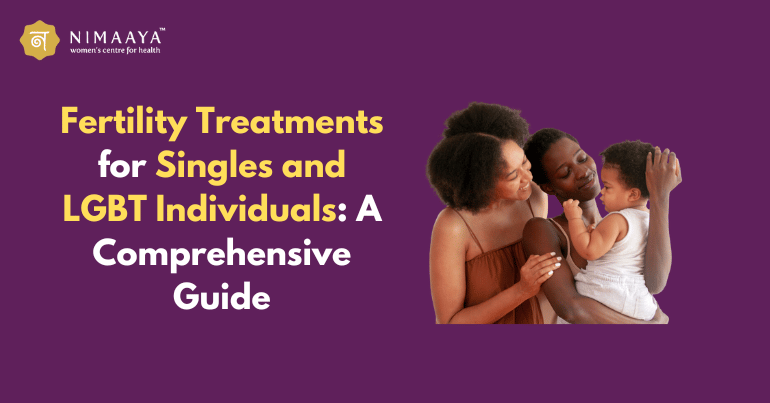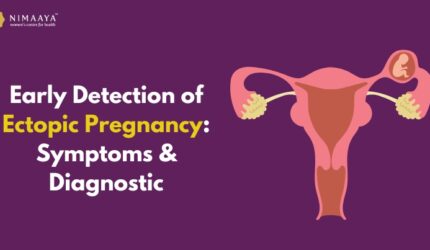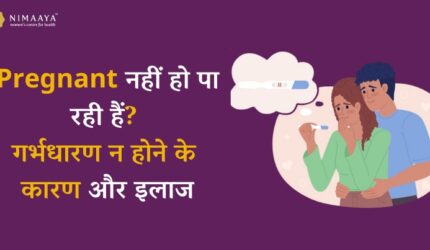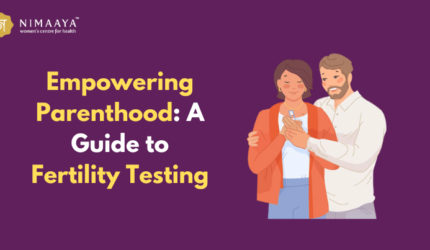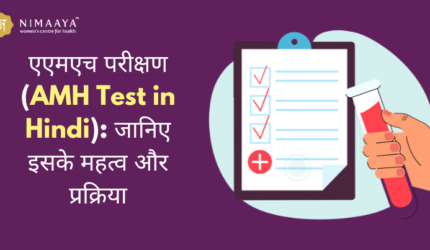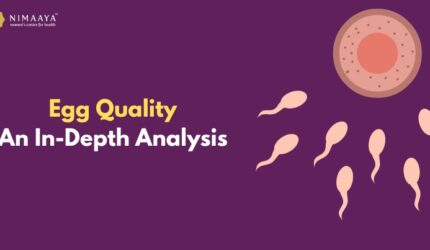Despite society’s rapid evolution, single and LGBT treatments are still not accepted, leading to hardships for individuals or couples seeking to build their own families. The LGBTQ+ population of this community often encounters hardships when building their own family, requiring support across legal, emotional, and financial realms.
At Nimaaya, we are committed to aiding families through counseling and consultation sessions that are in their best interest.
In this blog, we will cover different aspects, such as fertility options available for single individuals, what families or couples should consider while seeking to build babies, and the benefits of single and LGBT treatments.
Let’s explore in depth!
What is a Fertility Treatment for Single Individuals and LGBT?
Fertility treatment for single individuals and LGBT means how medical procedures or assisted reproductive technology (ART) can help them to complete their families. Besides, this will also be helpful for those couples who are facing any difficulty while conceiving a baby, the reasons may be infertility or single parenthood. There are various treatments to cure it such as IUI, IVF, donor sperm, or egg donation. We will discuss all these treatments in detail in the next part of the blog.
Fertility Options for Single Individuals and LGBT?
After undergoing various tests, there is a need to figure out appropriate single and LGBT treatment. Let’s explore different ART (Appropriate reproductive technology):
Sperm Donation
The process involves using donated sperm from either a sperm bank or a doctor. It is usually preferred by single women, same-sex couples, and heterosexual couples. The process usually begins with IVF treatment or artificial insemination to facilitate pregnancy. It involves significant investments in time, energy, and finances encompassing donor screening, medical treatment, and associated egg bank or agency fees.
Sperm donation involves two methods:
-
Known Sperm Donor
If the sperm donor is known, the donor must be screened by a licensed sperm bank before donation. In some cases, the donor may also attend the patient’s initial consultation.
-
Anonymous Sperm Donor
In the case of an anonymous sperm donor, the selection is based on available genetic information to find the healthiest match available. This will indirectly help in making decisions regarding the quantity and type of sperm vials to be purchased.
Egg Donation
The fertility option for single individuals, egg donation involves retrieving eggs from a woman’s body and storing them under all necessary conditions for future use. Reasons for egg donation might include the presence of genetic diseases causing birth defects or age-related concerns.
- Consider these factors while going for an egg donation:
- You have at least had a healthy naturally-born child
- No history of genetic, hereditary, or infectious diseases that can be transmitted
- Age between 21 to 36 years
Opt for donor eggs or embryos if you have:
- No or insufficient ovaries due to surgical procedure or congenital condition
- Poor history of abnormal fertilization
- Undergone chemotherapy affecting fertility
- Severely diminished ovarian reserve or premature ovarian insufficiency
- Multiple times IVF cycle
IUI – Intrauterine Insemination
It is a nonsurgical fertility treatment in which a healthcare professional injects sperm into a woman’s uterus. This procedure aims at enhancing the chances of fertilization by increasing the number of healthy sperm reaching the fallopian tubes. It can be performed with a male partner’s sperm or donor sperm.
Go for IUI if you are:
- Same-sex couple
- Single women
- Male partner with low sperm count
- Couples with unexplained fertility
- Women with physical disabilities
Also Read: Understanding the IUI Process: Step-by-Step Guide to the Fertility Treatment
IVF – In Vitro Fertilization
IVF in single and LGBT treatment is opted for when you want to prevent the passing of genetic problems to a child. It usually begins with monitoring and stimulating a patient’s ovulatory process, removing an ovum from the ovaries, and letting sperm fertilize in a laboratory dish.
The most common practice adopted after considering emotional mental factors and others such as:
- Age
- Genetic diseases
- Medical history
- Sperm quality or quantity
Go for IVF if:
Choice and Control
IVF provides more control over the timing of conception by enabling the selection of viable embryos, reducing the risk of passing on hereditary diseases.
Family Building
In the case of LGBT family building, this type of treatment is often prepared as they have the opportunity to build a family but are unable to conceive naturally. This will fulfill their desire to become parents.
Surrogacy
It allows individuals and couples, where embryos created using genetic material, are then transferred to a surrogate uterus for gestation.
Egg or Sperm Donation
IVF involves the use of donated sperm or eggs, which proves beneficial for individuals or couples requiring donor garments to conceive.
Surrogacy
In layman’s terms, Surrogacy is when one person carries and gives birth to a baby for a single or an LGBT individual. It’s usually done through the IVF procedure, where the person carrying the pregnancy has no genetic relation to the baby. The process of surrogacy for LGBT family building begins with:
- Creating embryos through IVF using the eggs and sperm of the intended parents.
- Transferring the embryo to a surrogate who carries the pregnancy.
- Selecting a trustworthy carrier while ensuring compliance with all legal and psychological screenings.
- Once finalized, IVF treatment begins.
Why Do You Need a Gestational Surrogacy?
- Multiple times, implantation failure
- Absent uterus
- Previous pregnancy loss
- Uterine factor infertility
- Same-sex parents
Also Read: Surrogacy: A Comprehensive Guide to the Process, Types, and Legal Considerations
Consideration for Single and LGBT Family Building
Emotional Support for Fertility Treatment
Supporting Network
Find and join groups or communities tailored for single and LGBT treatments and provide a sense of belonging and understanding. These networks offer individual emotional support, aiding in managing anxiety and concerns associated with the fertility treatment process.
Decision Making and Coping
At Nimaaya IVF Center, we ensure informed decision-making by considering success rates, risks, and potential challenges, empowering couples or individuals. To cope with it, techniques like meditation, mindfulness, or engaging in hobbies can help reduce stress during the emotional phase.
The emotional phase of the treatment involves being confident enough in the decision-making phase. We at Nimaaya IVF Center make sure that we can make informed decisions based on considering factors such as success rates, risks, and potential challenges that can empower couples or individuals.
Relationship Dynamics
Emotional support includes partners supporting each other throughout the fertility treatment journey, strengthening relationships, and contributing to successful outcomes, particularly for single and LGBT treatments.
To cope with this, mutual support during challenging times fosters stronger bonds.
Medical Team and Emotional well Being
Besides partner support and assistance, having an expert team experienced in diverse family-building options provides emotional comfort. From counseling to regular check-ins, this team guides individuals through the fertility treatment process, addressing emotional needs.
Financial Planning for Fertility Treatments
Understanding Treatment Cost
The treatment cost may vary from person to person based on the chosen treatment, accommodation, and donor expenses such as screening, compensation, and legal fees.
Before opting for any ART, make sure to analyze the cash flow required and the success rate in decision-making.
Insurance Coverage
Review existing health insurance policies to understand fertility treatment coverage. This is done because there are possibilities that it requires research and strategic planning to manage financial obligations effectively.
Financial Assistance
Explore programs that are specifically designed to support single or LGBT individuals undergoing fertility treatment. What you need to do is filter out organizations that offer financial aid. You need to understand that not only investigating but also understanding the return rate should also make sense.
Tax Consideration
Leveraging available deductions helps to reduce financial burdens. Tax deductions provide long-term benefits by reducing overall financial strain. Ensuring proper emotional support, having a reliable medical team, and thorough financial planning are vital aspects when navigating fertility treatments, particularly for single individuals and members of the LGBT community.
These considerations play a crucial role in managing both emotional and financial aspects effectively.
Legal Considerations for Single and LGBT Family Building
Parental Rights and Agreement
When a donor and surrogate agree on parental rights, the next thing you should pay attention to is creating a contract outlining these parental rights, responsibilities, and expectations that become essential.
In the case of surrogacy, obtaining a pre-birth order legally establishes intended parental rights before a child’s birth, which is crucial for avoiding legal complications.
Donor and Surrogate Selection
When you seek assistance, making sure that all the legal, compensation, rights, and responsibilities are addressed and documented is vital. When they are addressed properly, it becomes easy for singles and LGBT individuals, facilitating family building without complications involved.
Parentage and Birth Certificates
For single individuals and LGBTs using ART, understanding and following legal processes to establish parentage is crucial for legally recognizing parental rights. Moreover, updating birth certificates to reflect intended parents, especially in surrogacy or donor gametes scenarios, should be taken into consideration, aligning with legal regulations.
Legal Consultation and Documentation
Seeking guidance from lawyers specializing in reproductive laws is crucial. They assist in drafting comprehensive legal agreements, ensuring clear documentation of intentions, agreements, and consent regarding parental rights, custody, and financial responsibilities in legally binding contracts. This is vital for all parties involved in the process.
Why Nimaaya?
We hope you got a clear idea of single and LGBT treatments that are available at Nimaaya IVF center.
We hold a good track record of successfully bringing smiles to family members by delivering babies. With over a decade of experience in the industry, our team comprises skilled IVF specialists who have acquired knowledge and expertise. We pride ourselves on using the most updated technology and cutting-edge equipment to provide top-notch consultation tailored for single individuals and members of the LGBTQ+ individuals.

